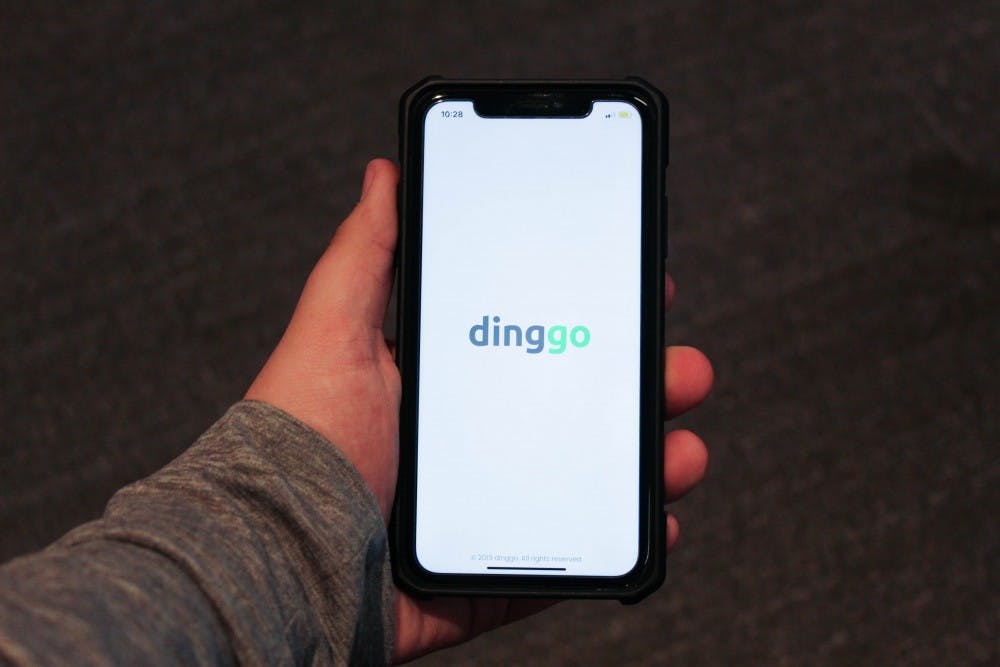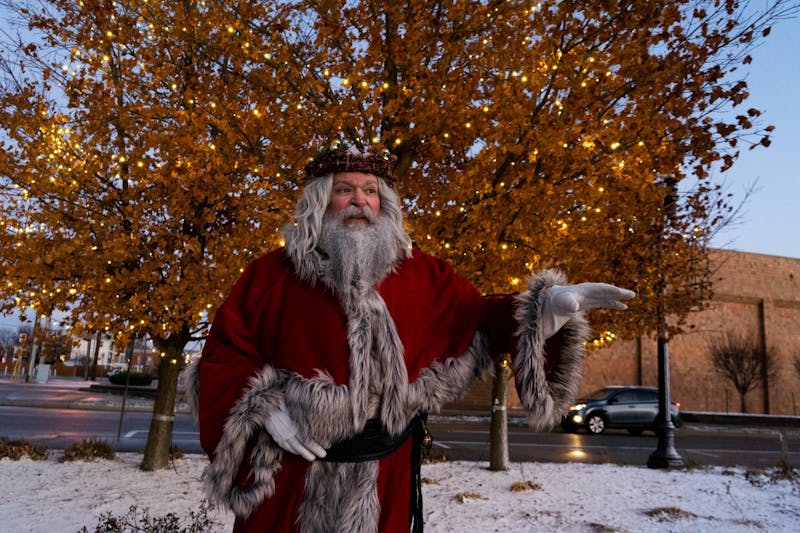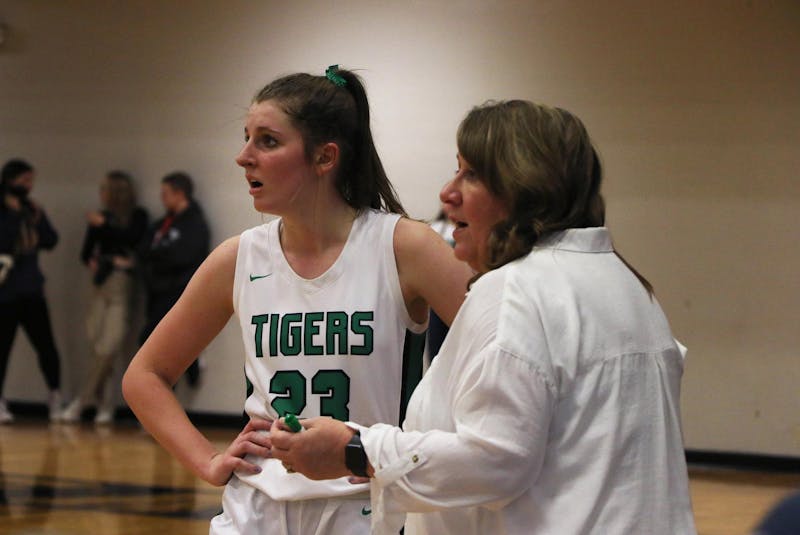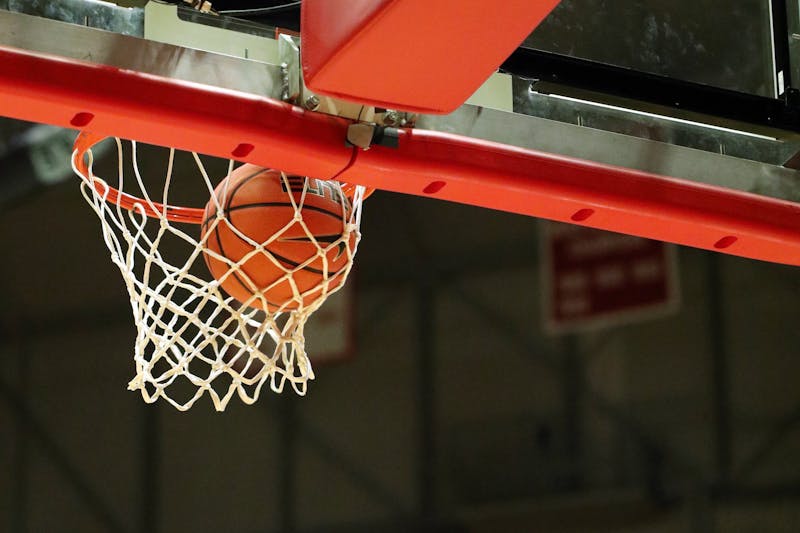Think about those nights, sitting on the couch with someone, when picking a movie or show seems absolutely impossible. Clicking through Netflix, Hulu and Amazon Prime for the third time, nothing stands out, so the fifth season of “The Office” it is … again.
Nick Molter, 2014 Ball State graduate, and his fiance found themselves doing the same thing, so Molter decided to look for an app that could help.
“I’m sure there’s an app out there that’ll let you swipe through and make the decision making process easier,” Molter said.
But, after scrolling through pages of new apps, Molter never found one and soon forgot he ever looked.
School
After graduating from Ball State with a degree in business administration and a minor in operations management, Molter enrolled at Purdue University to work on his master’s degree.
While at Purdue, he took classes about website data collection and how the brain works, which prompted his memory about the app idea he had. One year later, he decided to pursue that idea by designing the app, Dinggo.
Thawatchai Jitpaiboon, associate professor of information systems and operations management at Ball State, recalls Molter being highly mature for his age. Molter had a job during his time in school, and Jitpaiboon said it was what put his view in a different perspective than other students.
“Nick had demonstrated exceptional leadership, excellent work ethic, maturity, and intellectual abilities,” Jitpaiboon said.
Jitpaiboon also said Molter was the only one of his students who had real working experience in the operations management field, and Molter was willing to take on new challenges, which is a trait of successful people.
“I am sure he has the right ingredients to make the Dinggo successful,” Jitpaiboon said.
Prototypes
Molter said he is a self-proclaimed terrible artist. He started his app with early sketches on paper but soon switched to PowerPoint. After rearranging images and ideas, Molter had his first visual prototype.
With his new prototype, Molter decided to hire a developer, who he said helped him a lot with the project.
Even with the help of a developer, Molter said he still did a lot of the data science programming, as well as backend work — work that helps make the app functional.
“I acted as the architect, where as [the developers] were more of the construction crew,” Molter said.
Along with the creation, Molter had to decide on a name for his app. Vendigo — because of how a Venn diagram works with all the similarities in the middle — was one of his top choices, but he found out a finance company already had the name.
Molter eventually decided with Dinggo, even though he originally didn’t care for it much.
“It actually doesn’t mean anything,” Molter said. “But, the more I said it to other people, everyone else [kind of] liked it, and it stuck. So, that’s what we went with.”
Once the first prototype was functional, Molter said he sent out an early version to his friends and family. His goal was to gain validation for his app and to see what others wanted changed about the app.
After applying the suggestions and edits from the first round of the app, Molter decided he was ready to send the program to Apple.
Bad Apple
Before Apple releases anything on their app store, the company has to personally review it. During that process, Molter said the feedback Apple gave him was vague.
“It was really frustrating,” Molter said. “Talking to Apple was like talking to a lawyer-robot.”
The company rejected his app the first time he submitted it but would not give him specific reasons why.
Eventually, Molter did the seemingly impossible — he convinced Apple to call him. Two days later, his app was live after eight weeks of hard work.
Since the app launched, Molter said it has received around 200 reviews on both the Apple store and Google Play store.
“It’s actually getting good reviews on [the app stores], which is reassuring since it’s the first version of the app,” Molter said.
Molter said the younger generations understand how the app works the most because of the similarity with apps like Tinder — where swiping left or right swipe is a filtering mechanism similar to Dinggos.
“We help you pick a movie the same way Tinder helps you pick a date,” Molter said.
The future of Dinggo
Molter said the app and website will look relatively similar to how it looks now, just better. He wants to add new features and refine old ones.
In the future, he said he would like to add live streaming options similar to what Hulu does. He also wants to add more streaming services, so the app will be able to be used by more customers.
With more customers comes the ability to gain revenue through promoted content. Molter wants to work closer with streaming services and use the data from his app to make everyone’s experience better.
“We designed Dinggo to say, ‘Hey, [you] don’t [need] be exposed to the same 12 [shows] the entire time,” Molter said. “Like there’s some good ones hidden back deeper, you just have to know where to look.”
Contact Jacob Musselman with comments at jhmusselman@bsu.edu.





The Daily News welcomes thoughtful discussion on all of our stories, but please keep comments civil and on-topic. Read our full guidelines here.